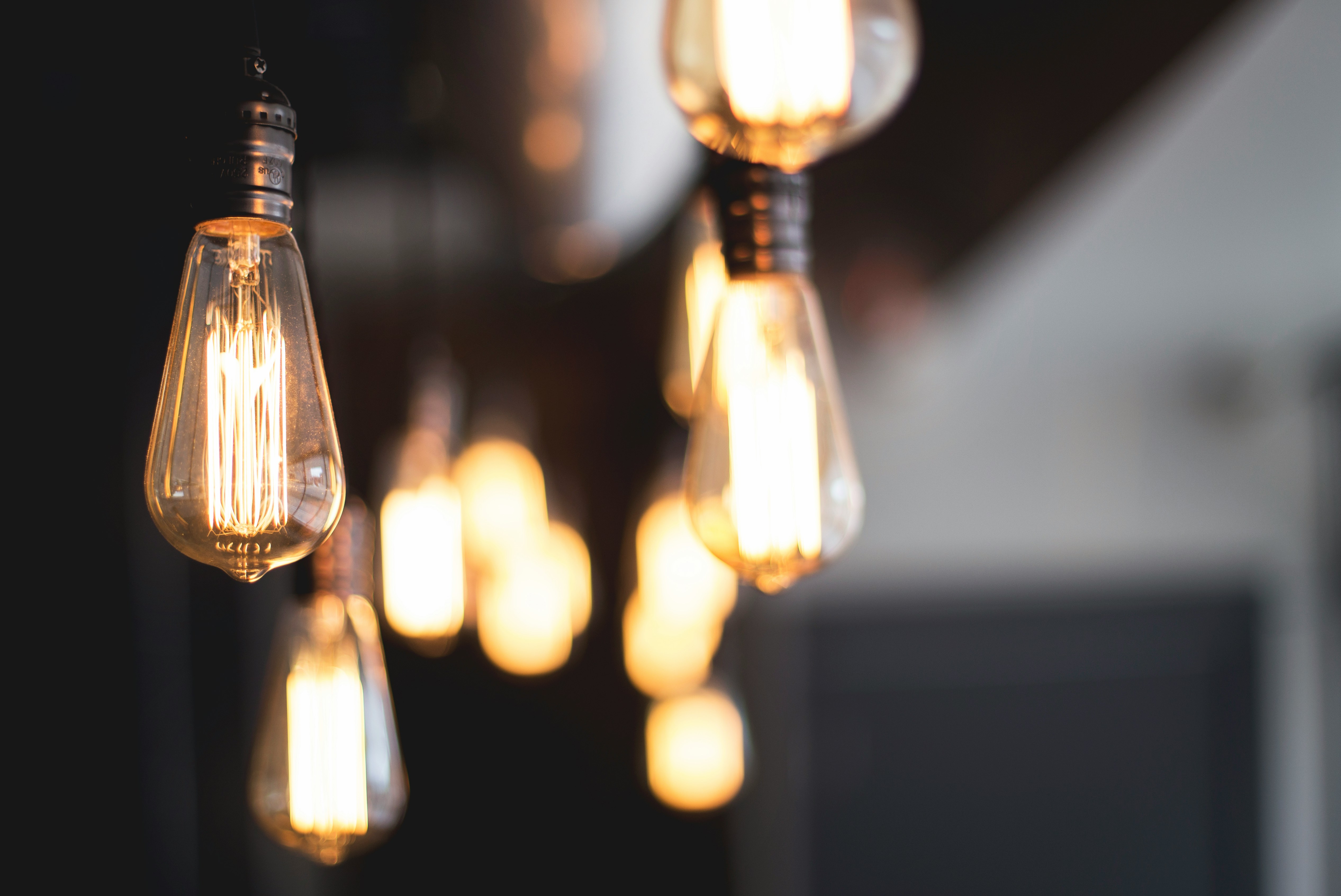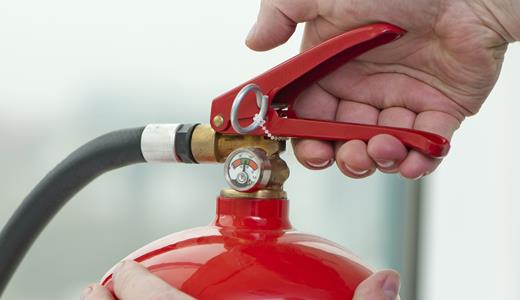Fire safety advice for your home
There are lots of precautions you can take in the home to prevent common household fires, from keeping safe in the kitchen to preventing electrical fires. Find out more now.
-
take extra care if you need to leave the kitchen whilst cooking, take pans off the heat or turn them down to avoid risk
-
avoid cooking when under the influence of alcohol
-
avoid leaving children in the kitchen alone when cooking on the hob
-
keep matches and saucepan handles out of children's reach
-
make sure saucepan handles don’t stick out so they don’t get knocked off the stove
-
take care if you’re wearing loose clothing which could catch fire
-
keep tea towels and clothes away from the cooker and hob
-
spark devices are safer than matches or lighters to light gas cookers, because they don’t have a naked flame
-
double-check that the cooker is off when you’ve finished cooking
-
take care with electric leads and appliances
-
keep electrics away from water
-
don’t put anything metal in the microwave
-
check toasters are clean and placed away from curtains and kitchen rolls
-
keep the oven, hob and grill clean and in good working order – a build-up of fat and grease can ignite a fire
-
take care when cooking with hot oil, as it can set alight easily
-
make sure food is dry before putting it in hot oil so it doesn’t splash
-
if the oil starts to smoke, it’s too hot, so turn off the heat and leave it to cool
-
use a thermostat-controlled electric deep fat fryer, as these can’t overheat
-
never throw water over a burning pan, this will cause it to explode into a fireball
-
turn off the heat if it’s safe to do so
-
do not move the pan or take any risks
-
don’t tackle the fire yourself, leave the room, close the door, warn anyone else in your home and call 999 for the fire service
- unplugging appliances helps reduce the risk of fire, so unplug when you’re not using them or when you go to bed
-
keep electrical appliances clean and in good working order
-
keep your eyes peeled for signs of dangerous or loose wiring such as scorch marks, hot plugs, hot sockets, fuses that blow, flickering lights or circuit breakers that trip for no apparent reason
-
always check that you use the right fuse to prevent overheating
-
when buying a new appliance or charger, check for the British or European safety mark
-
try and keep to one plug per socket, but if you do use an extension lead or adapter, be careful not to overload them
-
certain high-powered appliances like washing machines should have a single plug to themselves
-
when charging electrical goods, follow the manufacturer’s instructions
-
appliances use different amounts of power – a television may use a 3 amp plug and a vacuum cleaner a 5 amp plug for example, so know the limit
-
remember to check electrical leads for signs of wear and tear, especially if they are hidden from view – behind furniture or under carpets and mats
-
always ensure that your furniture meets the Fire Safety Cigarette and Match Standards, and comes with flame-resistant labels
We always ask customers not to use portable heaters, but we know you sometimes feel there is no other choice. If you do use them, please follow our guidance to help keep you and your family safe.
-
always unplug electric heaters when you go out or go to bed
-
never leave them unattended, even if you are at home
-
try to secure heaters against a wall to stop them from falling over, or keep them on level surface away from anything that could knock them over
-
only use electric or portable heaters in well-ventilated areas
-
never power heaters from extension leads – they can become overloaded and cause a fire
-
always check your heater for wear and tear, and don’t use it if it isn’t in good condition
-
only buy appliances from reputable companies
-
register your appliances in case the manufacturer ever recalls them
-
make sure your smoke alarms are working, so any fire is caught early and you can get out safely
Using an electric blanket
-
it’s risky to use hot water bottles in an electric blanket, even if it’s switched off, in case water leaks out
-
try not to buy second hand blankets
-
check your electric blanket regularly for wear and tear and replace it after 10 years
-
always follow the manufacturer’s instructions
-
unplug blankets when you get into bed (unless they have a thermostat and will switch off automatically)
-
damage to the internal wiring of an electric blanket can be dangerous, so keep yours flat, loosely folded or gently rolled up when not using
-
investigate getting your electric blankets tested every three years by your local fire service
Remember: Put them out. Right out!
The best way to reduce the risk of fires from cigarettes is to quit smoking them completely. Talk to your GP or visit the NHS quit smoking advice if you’d like to discuss ways to quit smoking.
-
stub cigarettes out properly and dispose of them carefully
-
never smoke in bed
-
smoke outdoors and put cigarettes right out – this is safer than smoking indoors
-
use a proper ashtray – never a wastepaper basket
-
make sure your ashtray can’t tip over and is made of a material that won’t burn
-
don’t leave a lit cigarette, cigar or pipe lying around which can easily fall and start a fire
-
take extra care if you smoke when you’re tired, taking prescription drugs, or if you’ve been drinking as you may fall asleep which can start a fire in your bed or sofa
-
unplug e-cigarettes when fully charged and ensure you are using the correct charger
-
never smoke illegally manufactured cigarettes
Lithium-ion batteries are used in many products, including e-scooters and e-bikes. As their popularity has gone up, so has the number of accidental fires including lithium-ion batteries. These batteries are also found in phones, laptops, cameras and even children’s toys.
Here are some steps you can take to keep yourself and other residents safe.
-
always use the correct charger for the product and buy an official one from a reliable seller
-
allow them to cool down before recharging as they can get hot and could be more likely to fail
-
always charge the batteries on hard flat surfaces where heat can disperse
-
damaged batteries can be dangerous, so try not to knock them around while in use
-
always make sure you unplug your charger once it’s finished charging
-
don’t leave a charging battery unattended or while you sleep
-
ensure you have smoke alarms fitted in areas where e-bikes or e-scooters are being charged and test them regularly, storing them somewhere away from a main throughroute
-
LED or battery-operated candles are safer alternatives to open flames
-
make sure candles are secured in a proper holder and away from materials that may catch fire like curtains
-
put candles out when you leave the room, and make sure they’re put out completely at night
-
never leave a child alone with lit candles
-
keep pets away from lit candles
-
keep matches and lighters out of children’s reach
-
only buy child-resistant lighters and matchboxes
What would you do if your smoke alarm went off during the night? Make a plan for an emergency so if it does happen, you’ll know exactly what to do.
First, plan an escape route and make sure everyone knows how to escape. The best route is the normal way in and out of your home.
Think of a second route in case the first one is blocked. Then, take a few minutes to practise your escape plan with your family. Keep door and window keys where everyone can find them.
Make sure these exits are kept clear.
Review your plan if the layout of your home changes.
Remember: in the event of a fire, get out, stay out, then call 999.
You are more at risk from a fire when asleep, so it’s a good idea to check your home before you go to bed.
-
close inside doors at night which would stop a fire from spreading from room to room
-
turn off and unplug electrical appliances unless they are designed to be left on like your freezer
-
check your cooker is turned off
-
don’t run high-powered appliances overnight, like washing machines, tumble dryers and dishwashers
-
turn heaters off and put up fireguards if you have a fireplace
-
put candles and cigarettes out properly
-
make sure exits are kept clear
-
keep door and window keys where everyone can find them.
Fire evacuation policies where you live
See which evacuation policy applies to your scheme or housing development.




